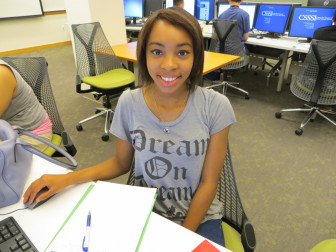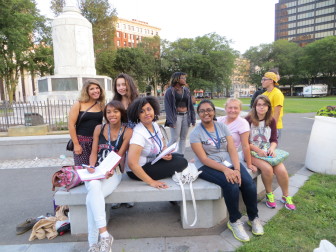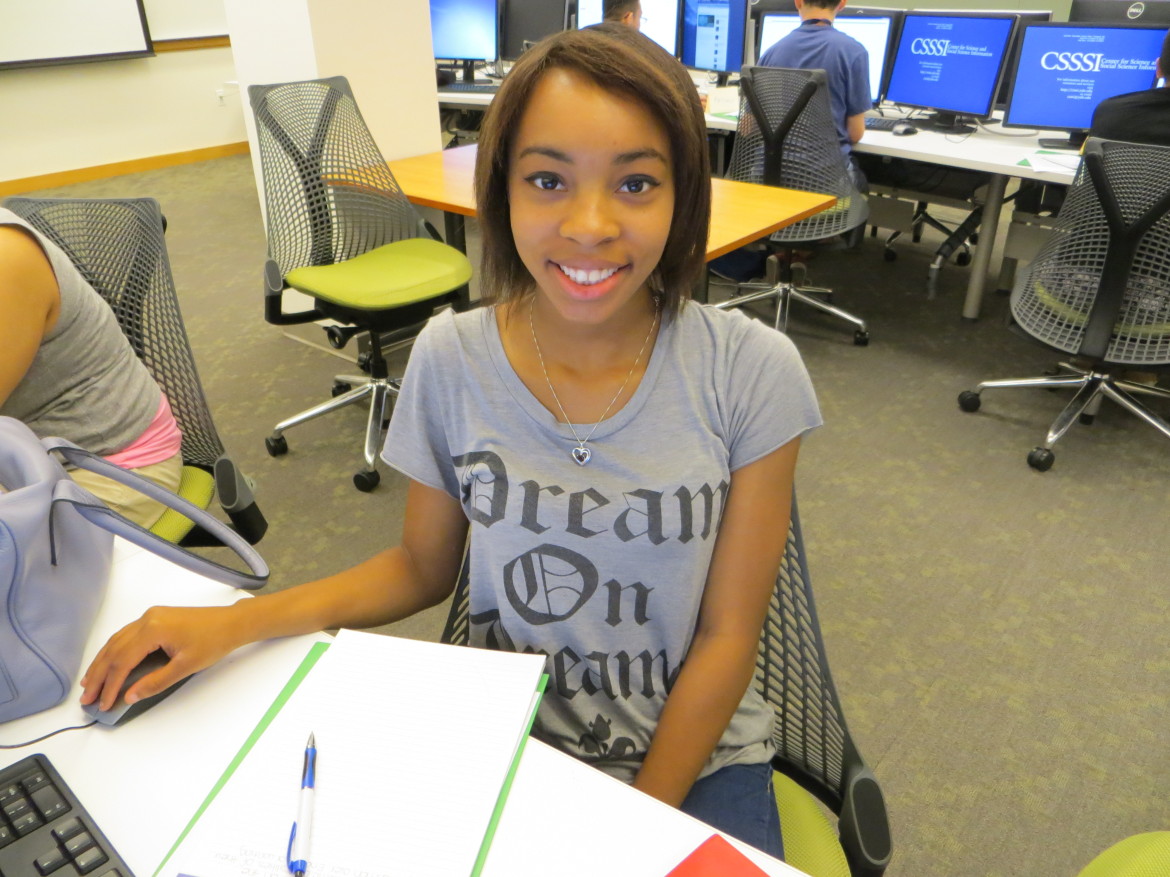Amber Seuss was one of many freshman to endure the suspense that came with applying to a New Haven high school via the lottery system back in 2011.

Dymin
“I remember it was scary,” said Seuss, now a senior at Cooperative Arts and Humanities High School.
Seuss wanted to go to Co-Op because her goal is to become an art historian and the school focuses on visual arts and related subjects. If she didn’t get in, Seuss would have turned down her second choice and gone to a local high school in Wallingford, because only Co-Op targeted her specific goals.
Seuss got in.
With specialized schools for arts and sciences, some New Haven students feel a random placement doesn’t make sense. Others are upset at not getting their first choice, which might have helped them reach their career goals sooner.
Home to approximately 8,200 high school students from the New Haven and surrounding suburbs, the city uses a lottery system to place incoming freshman into specialized high schools. The district uses the lottery to “foster racial, ethnic and economic diversity among students,” according to the New Haven School Choice website.
Officials from the New Haven Public Schools did not return requests for comment.
Students choose four schools they’d like to attend in the upcoming academic year. However, not all get in to their first choice, depending on how many people are vying for those slots. Chances are better that a student will get into his or her first choice school if a sibling already attends. Sometimes, students are not assigned to any of their requested schools and are automatically sent to the school closest to their home.
Schools like Wilbur Cross and James Hillhouse high schools have the most students. Wilbur Cross has more than 1,200 students and James Hillhouse High School has over 900.
New Haven’s schools include many with specific subject themes. Sound School is the only school that focuses on marine biology. Co-Op is the only arts-centered public school. Some themes are available at more than one school. For example, both Hill Regional Career High School and Metropolitan High School focus on business and technology. But some schools are more popular. Career had 555 New Haven applicants last year, while Metropolitan had only 465.
Jennifer Zambrano, 17 of New Haven, hoped to attend Co-Op high and participate in the creative writing program, in order to pursue her dream of becoming an author. Instead, she was sent to Wilbur Cross, a traditional public high school.

Dymin and workshop friends on New Haven Green.
After she didn’t get accepted to Co-Op, Zambrano said she became insecure about her writing and stopped pursuing it. She didn’t even try to take special English classes at Wilbur Cross.
“I was a freshman and they put me in a regular English class, and my English teacher saw that I was doing the class work but would also do my own writing,” Zambrano said. “She told me how there were some classes I could take. But I wasn’t too sure because I was discouraged about my writing. So, I just stayed with a regular English class.”
Several aspiring artists attend the regional arts school, Educational Center for the Arts, or ECA. This institution takes its students in the middle of a school day at their regular school, and teaches them the craft of music, liberal arts, dance, theatre, and visual arts. Students must audition for a slot in the program.
“I think the audition is a critical portion of applying to an arts school especially, seeing as it tells the staff whether you are taking your art form seriously or not,” said ECA senior Rachel Burke. “I think it’s a better way to go about acceptances than a lottery system, because that technique can seriously hit or miss in terms of admissions.”
Dymin Ellis is a student at Hill Regional Career High School.
